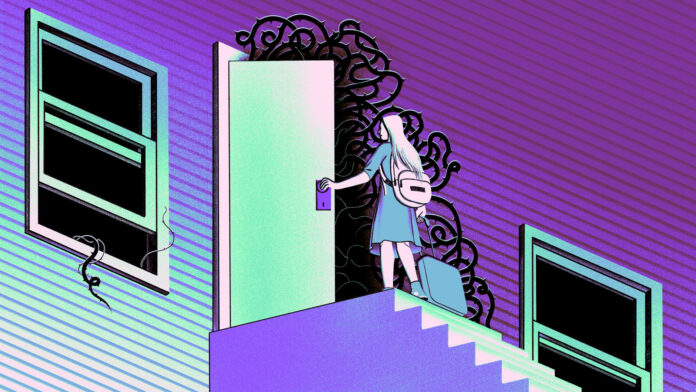
Staying home and sheltering in place can be stressful for everyone. But for some college students who identify as LGBTQ, returning to family environments can be very difficult and even psychologically damaging, psychologists say.
“A lot of young people when they make it to college are able, for the first time, really, to live their truth,” says psychologist Megan Mooney who works with children, teens and young people and specializes in preventing and treating trauma in LGBTQ youth. Mooney is also President of the Texas Psychological Association. Now, many young people are forced to stay in a home setting that forces them to hide their identity again. And even when stay-at-home orders start to lift, most dorms are closed, and colleges may stay closed for summer and and even fall terms
For many of these young people, Mooney says, college is a refuge from years of rejection and discrimination in high school and even from family members.
“The vast majority of LGBTQ youth in high school experienced name-calling on a regular basis, the kinds of names I don’t even like to repeat because they are so offensive,” Mooney says. In addition, school policies often prohibited the type of clothing they wanted to wear, the restrooms they could use, athletic events they could take part in, as well as participation in special celebrations like prom with their partners.
College is “a life affirming new world,” says Mooney, “where these young people can date who they want, dress as they choose, access medical care and treatments they weren’t able to before, access mental health care they weren’t able to before; being out of the home and away at college is a life line for a lot of LGBTQ people.”
Returning to the family home can be traumatizing all over again, she says, especially if parents or siblings reject them or are even hostile. She says LGBTQ young people have a high likelihood of having experienced a lot of trauma and stressful life events already; that means the impact of returning to an unsupportive home is dramatically magnified.
“So what we are most concerned about is seeing increases in anxiety and depression including suicidality,” Mooney says.
Suicide and crisis hotline calls are now on a rapid rise at The Trevor Project, a large suicide prevention and crisis intervention organization for LGBTQ young people. CEO Amit Paley says that since the onset of COVID-19 the volume of youth reaching out to The Trevor Project’s crisis services program has increased dramatically at times spiking to more than double the volumes from earlier in 2020.
“There are just so many young people who are impacted and scared and frightened and in unsafe or challenging situations and many of them are reaching out for help and to talk about what they are going through,” he says.
Paley points out that LGBTQ youth who have rejecting families are eight times more likely to attempt suicide than those who do not have rejecting families, according to a study published in 2009 in the journal Pediatrics. Conversely, a recent Trevor Project survey found that just having one supportive adult in a young person’s life reduces their risk of suicide by 40%.
“And that’s why we really want to make sure that every adult and every family member is really thinking about how they can come from a place of love and support and acceptance because it can literally save lives,” he says.
Source:
Comment:
I choose this article because it addressed the problem in the current situation. The pandemic forced some college students to stay with their conservative families. It could lead to serious LGBTQ young people’s mental problems.



